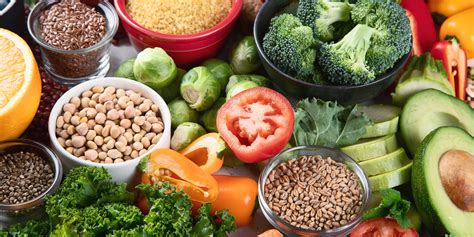What are actionable steps to naturally optimize testosterone for strength & drive?

Unlock Your Potential: Naturally Optimizing Testosterone
Testosterone is a vital hormone, particularly for men, playing a crucial role in everything from muscle mass and bone density to mood, energy levels, and sex drive. While aging naturally brings a decline in testosterone, many lifestyle factors can either accelerate this drop or, conversely, help maintain optimal levels. The good news is that numerous natural, actionable steps can significantly impact your testosterone production, leading to increased strength, improved mood, and enhanced overall drive.

The Foundation: Diet and Nutrition
What you eat directly fuels your body’s hormone production. A diet rich in whole, unprocessed foods is paramount. Focus on:
- Healthy Fats: Essential for hormone synthesis. Include sources like avocados, nuts, seeds, olive oil, and fatty fish (salmon, mackerel). Don’t fear cholesterol; it’s a precursor to testosterone.
- Adequate Protein: Crucial for muscle repair and growth, which indirectly supports testosterone. Aim for lean meats, poultry, eggs, dairy, and plant-based proteins like legumes.
- Complex Carbohydrates: Provide sustained energy and prevent cortisol spikes from low blood sugar. Opt for whole grains, fruits, and vegetables.
- Micronutrients: Zinc, magnesium, and Vitamin D are particularly important. We’ll delve deeper into these shortly.
Conversely, limit processed foods, excessive sugar, trans fats, and overconsumption of alcohol, all of which can negatively impact hormone balance.
Move Your Body: Exercise Strategies
Exercise is a potent testosterone booster, but not all forms are equally effective. To maximize your hormone production:
- Strength Training: Compound lifts (squats, deadlifts, bench presses, overhead presses) involving multiple muscle groups are highly effective. Aim for 3-4 sessions per week with adequate recovery.
- High-Intensity Interval Training (HIIT): Short bursts of intense exercise followed by brief recovery periods have been shown to temporarily elevate testosterone.
Avoid excessive, chronic cardio, as prolonged endurance exercise without proper recovery can sometimes elevate cortisol (the stress hormone), which can suppress testosterone.

The Power of Rest: Prioritize Sleep
Sleep is when your body repairs and regenerates, including hormone production. Research indicates that the majority of your daily testosterone is produced during sleep, particularly during REM stages. Chronic sleep deprivation can drastically lower testosterone levels.
- Aim for 7-9 hours: Consistency is key. Go to bed and wake up around the same time each day, even on weekends.
- Improve Sleep Hygiene: Create a cool, dark, quiet sleep environment. Avoid screens an hour before bed and limit caffeine and heavy meals late in the evening.

Tame the Stress Monster: Cortisol Management
Chronic stress leads to elevated cortisol levels. Cortisol and testosterone share a common precursor, meaning that when cortisol production is high, resources are diverted away from testosterone synthesis. Effectively managing stress is crucial for maintaining healthy testosterone levels.
- Mindfulness and Meditation: Regular practice can significantly reduce stress hormones.
- Deep Breathing Exercises: Simple techniques to calm the nervous system.
- Hobbies and Relaxation: Engage in activities you enjoy, spend time in nature, or practice yoga.
- Social Connection: Strong social bonds can act as a buffer against stress.

Essential Micronutrients: Vitamin D and Zinc
These two nutrients stand out for their direct impact on testosterone production:
- Vitamin D: Often referred to as a pro-hormone, Vitamin D plays a crucial role in many bodily functions, including testosterone synthesis. Get adequate sun exposure (10-30 minutes daily, depending on skin type and location) or consider supplementation, especially in winter months or if you have limited sun exposure.
- Zinc: An essential mineral involved in over 300 enzymatic reactions, including those related to testosterone production. Rich sources include oysters, red meat, poultry, beans, nuts, and whole grains.
Always consult with a healthcare professional before starting any new supplement regimen.

Lifestyle Choices: What to Avoid
Beyond what you should do, consider what to avoid:
- Endocrine Disruptors: Chemicals found in plastics (BPA), pesticides, and certain personal care products can mimic or interfere with hormones. Opt for glass containers, organic produce, and natural cleaning products where possible.
- Excessive Alcohol: Can impair liver function and directly suppress testosterone production. Moderate consumption is generally fine, but heavy drinking is detrimental.
- Smoking: Negatively impacts overall health, including hormone balance.
Conclusion: A Holistic Path to Optimal Testosterone
Naturally optimizing testosterone is not about quick fixes but rather a consistent commitment to a healthy lifestyle. By adopting a nutrient-dense diet, incorporating effective exercise, prioritizing quality sleep, managing stress, and ensuring adequate micronutrient intake, you can create an environment where your body thrives. The rewards extend beyond increased strength and drive, encompassing improved mood, better cognitive function, and enhanced overall well-being. Start implementing these actionable steps today to unlock your full potential and reclaim your vitality.









